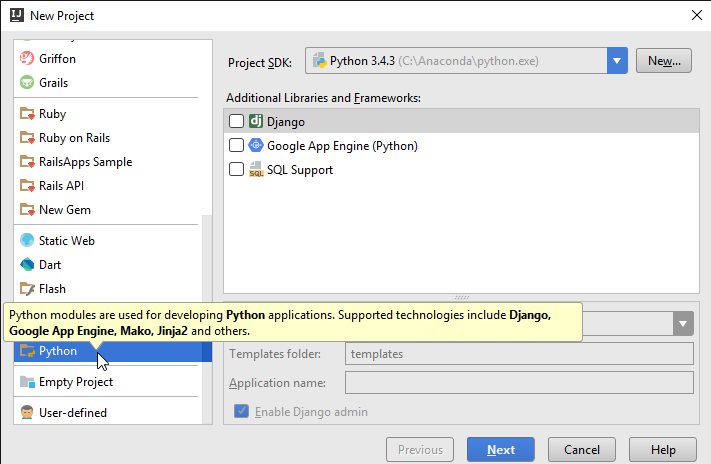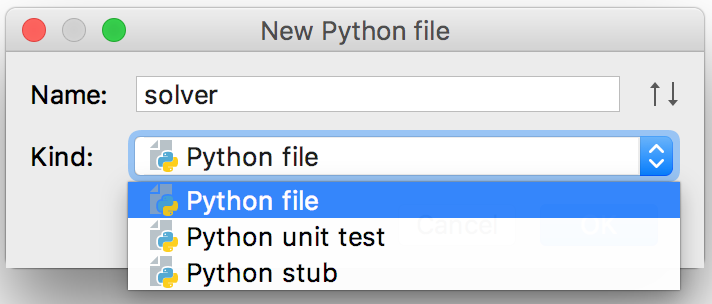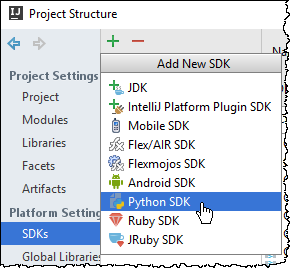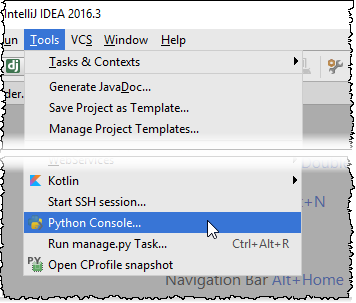Python Plugin
In this section:
- Python Plugin
- Python Language Support
- Django Framework Support
- Remote Debugging
- Type Hinting in IntelliJ IDEA
- Using Docstrings to Specify Types
Introduction
Python Plugin extends IntelliJ IDEA with the full-scale functionality for Python development.
Prerequisites
Before you start working with Python, make sure that Python plugin is installed and enabled. The plugin is not bundled with IntelliJ IDEA.
Also make sure that the following prerequisites are met:
- Python SDK is downloaded and installed on your machine.
- The required framework SDKs are downloaded and installed on your machine.
Refer to their respective download and installation pages for details:
Changes to the UI
Being installed, the Python Plugin introduces the following changes to the IntelliJ IDEA UI:
- Python module type is added to the New Project and New Module wizards.

- Python file type is added to the menu. The Python file, Python unit test, and Python stub file types are available.

- Python SDK can be specified in the Add new SDK popup under the SDKs node of the Project Structure dialog.

-
Django and Google App Engine (Python) are implemented as the facets, which can be attached to a Python module, either in the New Project dialog, or in the Modules or Facets pages of the Project Structure dialog:

- Python-related commands are added to the menu:

- Python and framework-specific run/debug configurations, inspections, intention actions, and refactorings.
Besides that, the following changes are made to the Settings/Preferences dialog:
- Python code style, colors and fonts, live templates.
- Python Debugger is added under the Build, Execution, Deployment node.
- Python-related options add to the Stepping page.
- Python console pages are added.
- Syntax and error highlighting
- More Python-specific options are added to the Coverage page.
- Python Template Languages, Python External Documentation, Python Integrated Tools, and Python Scientific pages are added.
- The Scientific Mode option is added to the menu.